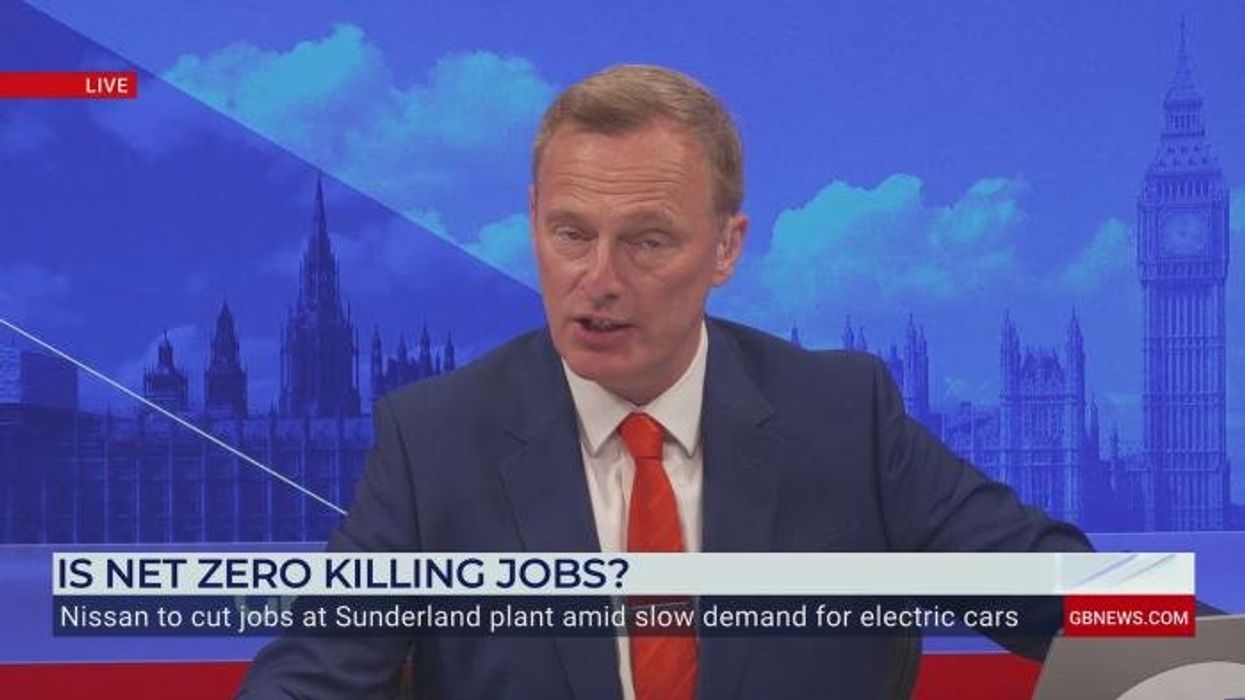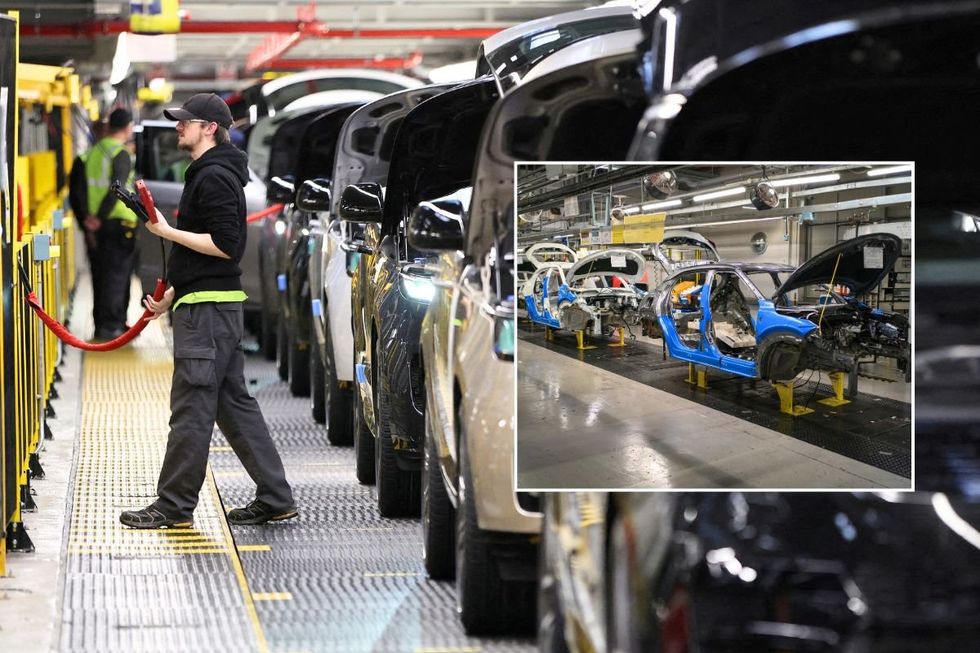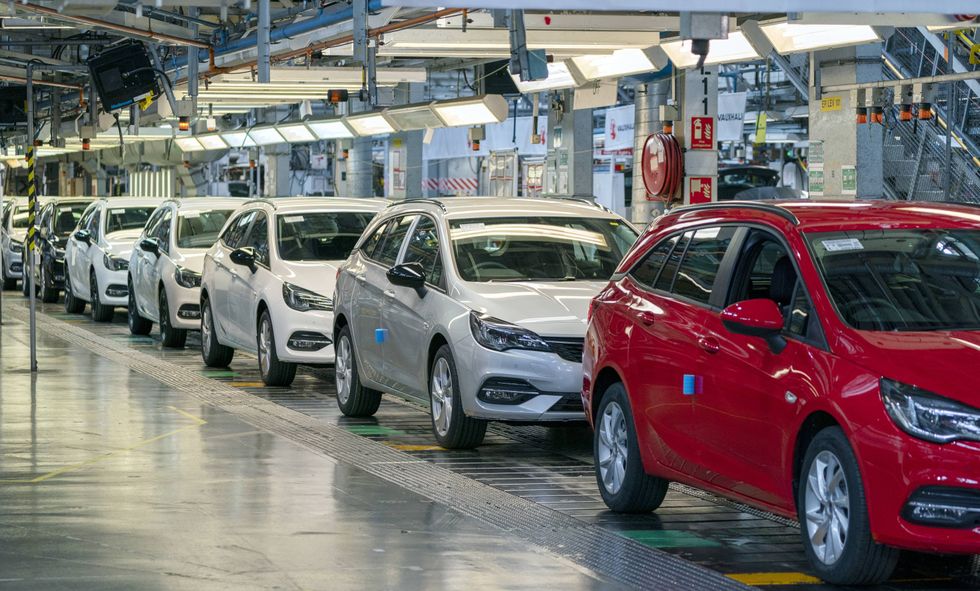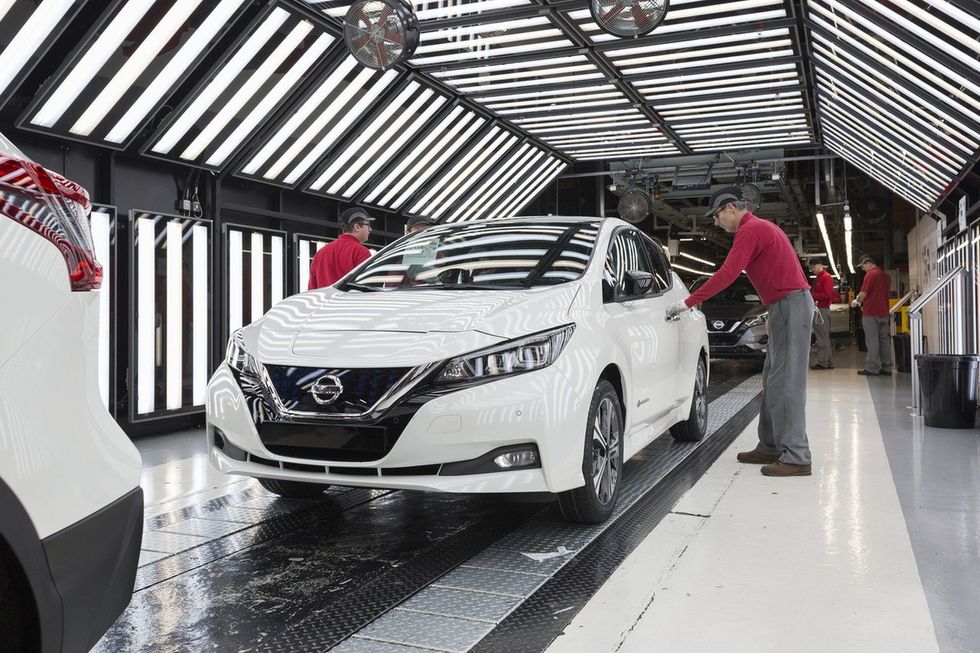Petrol and diesel ban could have major impact on UK car production amid slow uptake of electric vehicles

WATCH: Is net zero killing jobs? Nissan plans to slash 250 jobs from its Sunderland factory
|GB NEWS

The UK aims to produce 1.3 million vehicles a year by 2035
Don't Miss
Most Read
Experts are warning that the UK manufacturing sector could face difficulties in the lead-up to the 2030 petrol and diesel sales ban.
New data shows that the UK needs to attract fresh investment from the automotive manufacturing industry if it is to meet production targets over the coming years.
The Advanced Propulsion Centre (APC) stated that the production of one million vehicles is expected by the middle of the next decade.
Current estimates suggest that this will be helped by new model launches from manufacturers, with electric vehicle production set to more than double between 2027 and 2035 in Europe.
TRENDING
Stories
Videos
Your Say
The automotive demand forecast outlined that fresh investment for new models and new manufacturers is needed if the UK is to exceed current projections.
The Government plans to produce 1.3 million vehicles in the UK every year by the middle of next decade, up from the roughly 800,000 currently.
Mike Hawes, chief executive of the Society of Motor Manufacturers and Traders (SMMT), acknowledged that it would be a challenge, but remained optimistic.
Globally, vehicle production is expected to meet 100 million units by the end of the decade, with less than one-third set to have a battery electric powertrain.

Experts have warned that massive investment will be needed to meet Government manufacturing targets
|REUTERS/PA
The UK is moving ahead with its plan to ban the sale of new vehicles with internal combustion engines from 2030, before all vehicles will be zero emission five years later.
The five-year period in between the two deadlines will continue to allow new hybrid vehicles on the market, with many manufacturers already changing their production schedules.
Julian Hetherington, Automotive Transformation Director at APC, commented: "Although BEV production is set to more than double between 2027 and 2035, slow consumer uptake is forcing manufacturers to rethink their strategies in the near term.
"Many are extending internal combustion engine model lifecycles for certain markets and continuing to invest in hybrids and plug-in hybrids alongside their BEV offerings."

Future car production will be impacted by tariffs and driver appetite
| PALATEST DEVELOPMENTS:
Mr Hetherington highlighted that manufacturers who wanted to maintain the production of multiple different powertrains would find it expensive and face challenges.
He also acknowledged the impact of market volatility, namely from tariffs, which have fluctuated wildly under Donald Trump's second Presidency, as well as market appetite.
The UK continues to invest in its manufacturing sector, with the continued development of the AESC in Sunderland and the Agratas gigafactory in Somerset.
Manufacturers based in the UK are also accelerating plans to produce electric vehicles, with Nissan pledging to build its next generation of vehicles in Sunderland.

Nissan's Sunderland plant will produce the new Leaf electric vehicle model
| NISSANThe Sunderland plant is already home to Juke and Qashqai, two of the UK's best-selling vehicles, as well as the new European version of the Leaf, which is set to be released soon.
Dr Hadi Moztarzadeh, Head of Technology Trends at APC, noted that production at UK manufacturing sites would need to almost double compared to the 2025 levels.
He added: "The launch of the Government’s groundbreaking DRIVE35 programme is a vote of confidence for the UK automotive sector. This commitment from the Government to secure advanced manufacturing in the UK is exactly what the industry needs.
"Innovation is key to helping the UK increase the volume of vehicles made in the UK to over 1.3 million cars and commercial vehicles by 2035.
"The recently announced Scale-up fund will help manufacturers to have a more coherent support across their funding and support journey to commercialise innovative solutions in the UK."










